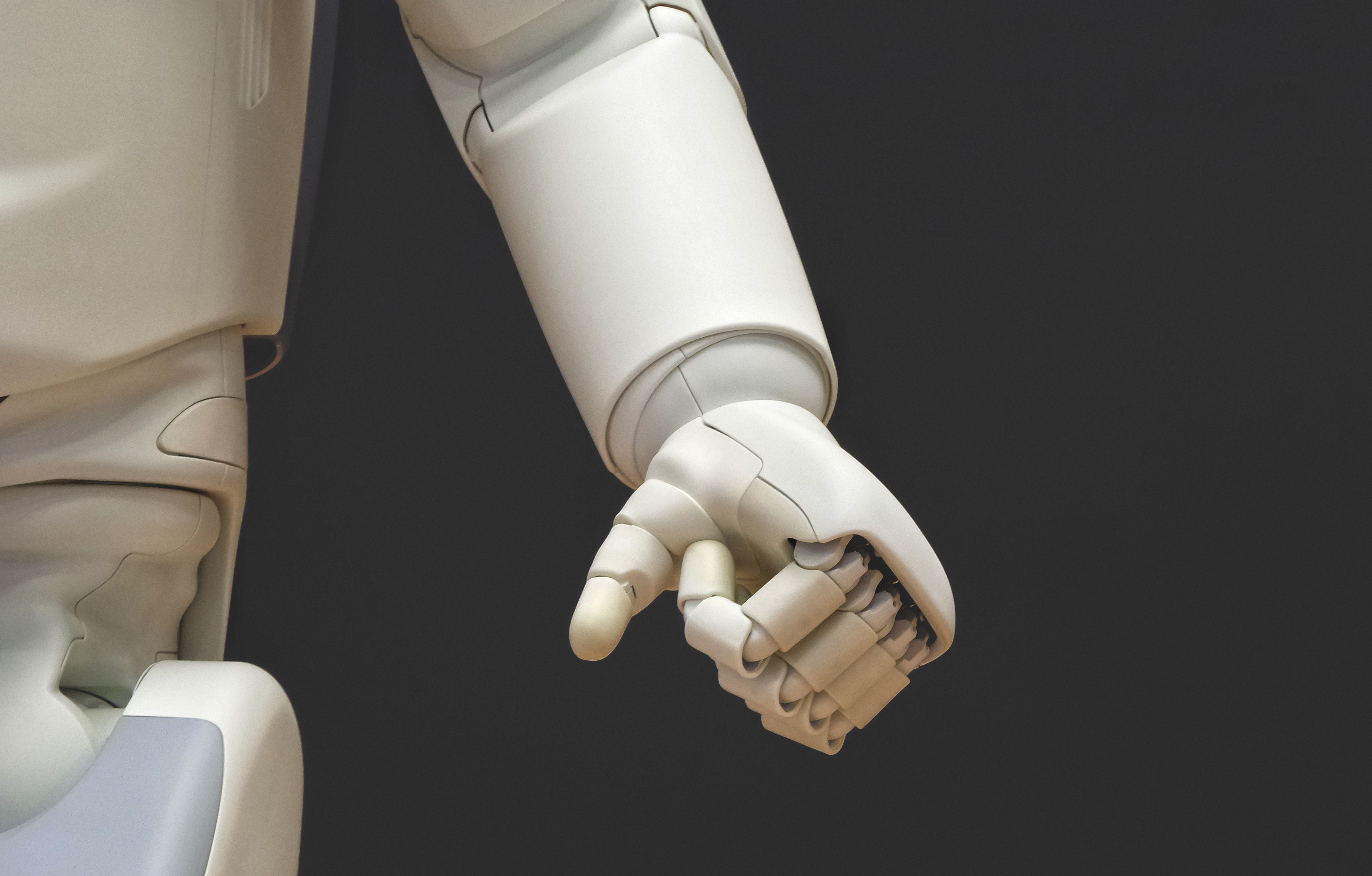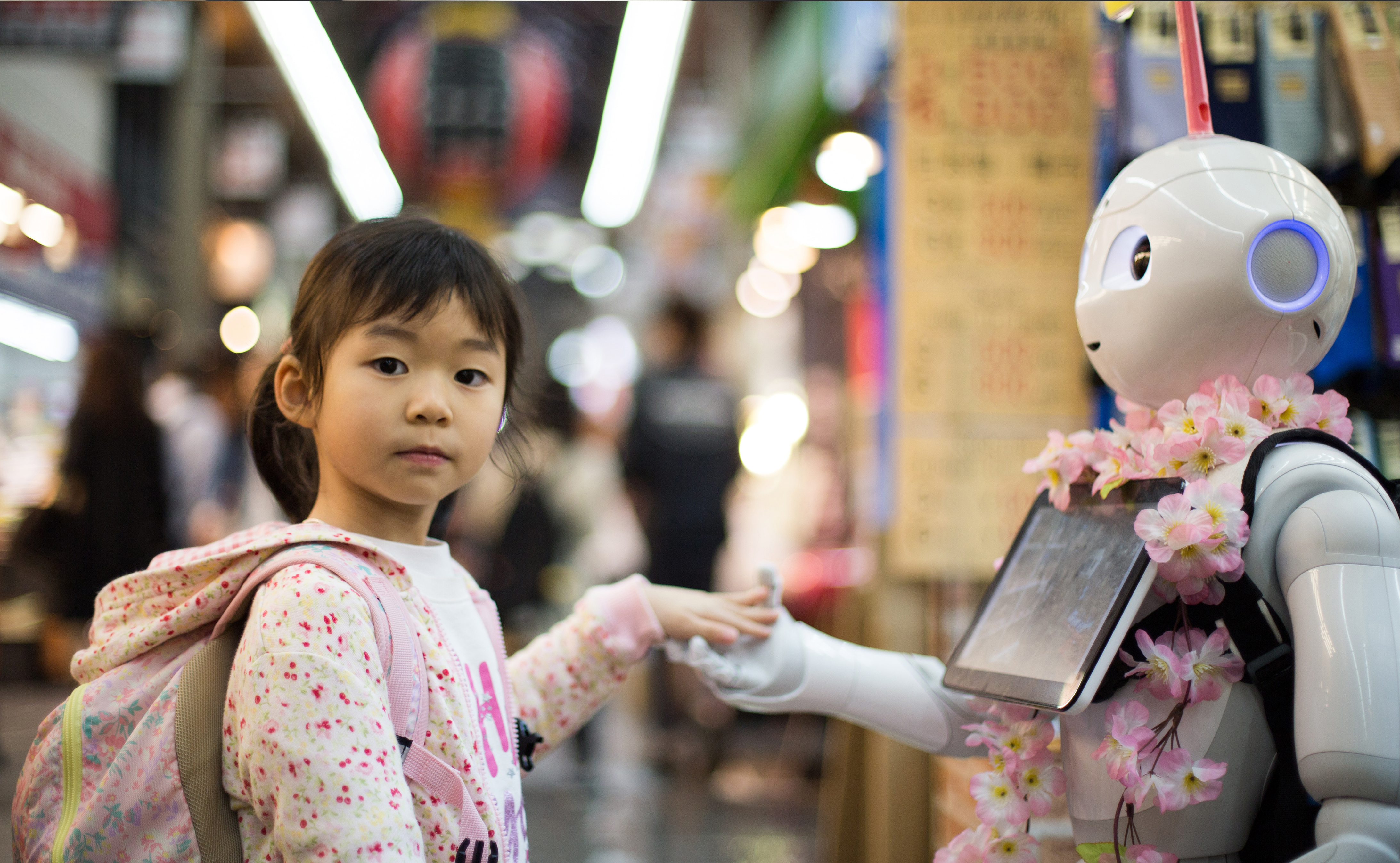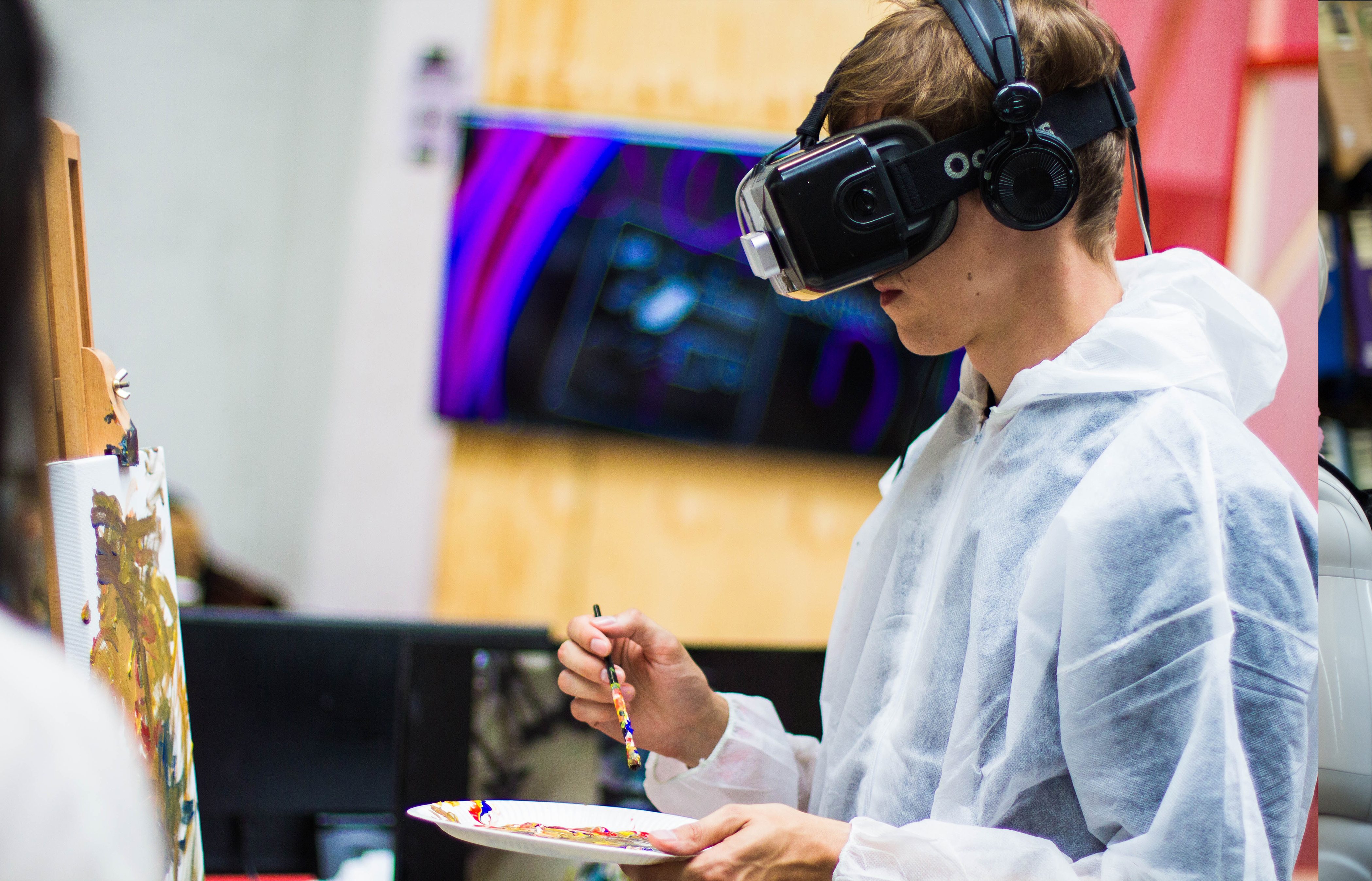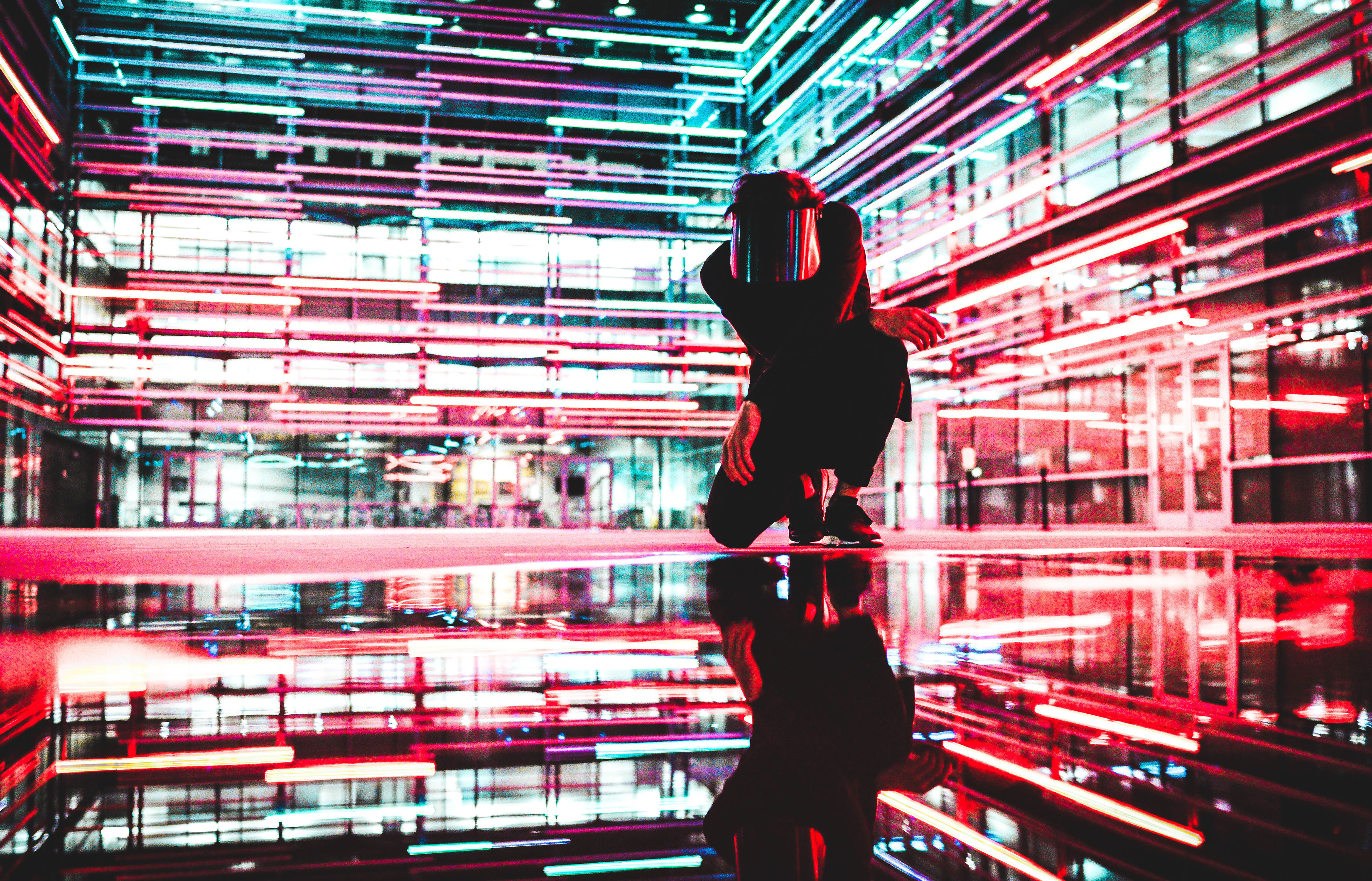Artificial intelligence - “Doomsday” or “golden age of universal prosperity”
Artificial Intelligence (AI) steadily occupies a leading position in the tops of breakthrough technologies since the end of the last century. Before the start of practical development, science fiction writers successfully exploited the topic of machine intelligence. As a rule, there were two main themes - a utopian, thriving human society, where all the problems of life support are assigned to smart robots, and dark prospects for the future, where power over a man is seized by machines. Today, these plots formed the basis of the ethical problems of the development of artificial intelligence. But first things first.

To create digital intelligence, the developers have identified two main areas. In one case, it was an imitation of the human brain with a complex network of neurons and nerve endings, and in the other, an attempt to develop a system of algorithms that repeat human mental activity. At the dawn of AI development, the first way was quite difficult to implement due to the modest capabilities of computing technology and the weak theoretical base. Therefore, priority was given to the development of algorithms. However, not all problems could be solved in this way. In some cases, the only way out could be neural networks, which became the basis of machine learning. The modern pace of development of computer technology and nano technology has played a positive role in the development of artificial neural networks.
Each of the ways to create artificial intelligence had its own strengths and weaknesses. When developing a system of algorithms, it was necessary to set a formal description of the solution to each problem. That is, in order to expand the circle of solved problems, the developer needs to add new algorithms to the program. Nevertheless, such devices solved logical problems well, and by the end of the 90s of the last century, the machine beat the world champion in chess.

Artificial neural networks do not require programming in the sense that this is implemented when creating systems of algorithms. The main advantage of neural networks is that they are capable of self-learning. On the basis of a large volume of correct problem solving, a relationship is built up between the input and output data. The first task, successfully solved by the neural network, was the recognition and classification of objects in the pictures no worse than people did.
It is logical to assume that combining the two approaches to creating AI could produce amazing results. Indeed, one of these results was a hybrid solution that beat a man into the game of go. Here are the best features of neural networks and algorithms. The AI first evaluated the position on the board as better / worse, and then the algorithm calculated only the options predicted by the neural network as good. There is no need to calculate all possible options. If this is compared with the behavior of a person, then the player intuitively determines the current situation, choosing the most optimal moves. But, unfortunately, such a hybrid approach is not always possible.
The practical application of artificial intelligence has come to the already prepared ground. Computer data processing has formed an environment of structured and standardized information. The use of scripts in various fields reduced the dependence of work results on the qualifications and personal qualities of employees. There is an adaptation of the human lifestyle for digital technology. Therefore, the zone of use of AI will constantly expand, partially replacing human labor.
The use of AI in driving allows you to put into practice the ideas of science fiction writers about cars without a driver. Already passed the successful tests of pilot versions of heavy vehicles. Probably in the near future we can expect the emergence of robots, taxis, replacing the traditional taxi drivers.
The high speed of computer processing of large volumes of information in combination with self-learning artificial intelligence allows today to save thousands of hours of working time, reducing the response time to a client request to zero. According to experts, by 2020, about 85% of customer interactions will be carried out without human participation. However, the use of AI is not limited to external communications. Innovative companies plan to incorporate artificial intelligence technology into their hiring and retention strategies. This may be the selection and filtering of a summary of a given parameter, tracking potential problems and causes of performance loss, analysis of employee behavior and much more.
We present the opinions of two experts. According to the head of the consulting department and services of Microsoft Italy: “Artificial intelligence will become a new business tool, and soon companies will no longer imagine how you can do without it.”
In 2019, the capabilities of artificial intelligence will be available on modern devices within companies, which will reduce the delays caused by the use of the cloud. This, in turn, will noticeably affect the nature of distributed networks and will make AI technology as ubiquitous as smartphones and e-mail are today. ”
Canon Europe’s Strategic Development Director Patrick Bischoff fully agrees with this:
“The future is intelligent peripheral and cloud solutions. In other words, intelligent solutions that are always at hand. ”
As one of the ways to implement AI, which appears today, you can consider the Internet of things. Smart sensors and connected devices are successfully used in everyday life and non-production. At the same time, hybrid cloud systems are being developed, which are transformed from a data center with a public cloud into computing units. Now these two trends have reached such a level that 2019 can be considered the beginning of an era of intelligent clouds and intellectual periphery.
It is clear that the practical application of AI has immense prospects. This is the complete automation of many processes, and the provision of security, and the jeweler’s precision of surgical operations, saving human lives, and the prediction of desires, with the goal of maximally satisfying needs. All this echoes the plot of science fiction writers about the creation of a prosperous society, where almost all the work is entrusted to robots. And then we will face the ethical question of the self-consciousness of artificial intelligence. Is it possible to recognize him as a rational being, equal to man and equal in rights? But this is only one side of the coin. In fact, you will have to face a number of problems of another kind.
The introduction of AI in human activity will lead to a reduction in traditional jobs. Not only cases of call-centers and drivers, but also lawyers, doctors, and teachers may not be in business. Now we can not even fully realize how AI can replace a person. That is, the release of labor resources will become a definite problem. To solve it, the society needs adaptation to the high-tech industry. But the difficulty will be in finding those areas where a person can compete with artificial intelligence.

In the process of developing AI, we will have to face many "childhood" diseases of the growing machine "mind". Imbalance of the input information will cause bias in the output. One of the manifestations of this phenomenon, which already had to face, was called the "problem of the white man." This name was given because of the predominance of white men in the results of AI. For example, advertising algorithms issued high-paying vacancies mostly to male visitors. Algorithms that select names, often left their choice on the "white" names. In the beauty contest, AI gave prizes to white contestants.
Another AI problem was revealed on social networks, in particular on Facebook. Based on the preferences of the user, he was offered content in only one key. At the same time hiding alternative points of view. At the current stage, such phenomena can be attributed to the imperfection of algorithms and machine learning. But in the future, if the AI will make life-determining decisions, for example, passing verdicts in court, this is unacceptable.
Like any strong AI technology can have a dual purpose. Therefore, it must be protected from data manipulation and distortion of algorithms by third parties. That is, all cybersecurity measures should be extended to AI, perhaps to a greater extent. How this will be implemented in practice is still an open question.
However, there is another problem of artificial intelligence, which is more complex and deeper than all the others. Despite the mathematical models, theoretical and experimental bases, even the developers of these algorithms can not explain how their product operates. The AI is a “black box” which theoretically should produce the expected results. But practice may differ from theory. Without knowing the processes occurring in the black box, they cannot be controlled.

Unlike a person, a machine learns to solve problems, but does not understand what it does. This may lead to the fact that the problem will be solved, but not at all as expected, although formally this will be a solution. As an example, we can give some "non-standard" solutions of AI created for passing games:
In games such decisions look funny, but in life it is fraught with global tragedies. It is likely that for AI, the solution to the problem of fighting cancer will be the destruction of all patients suffering from this disease. Therefore, the scenario of the destruction of humanity by machines does not seem so utopian.
As in the future, the symbiosis of man and the machine can only be assumed. It is necessary to understand that AI technologies will develop further. They open too many tempting prospects. Progress cannot be stopped. But the responsibility for the future still lies with man - will we create a world of universal prosperity or will we be destroyed by our own creation.
And what do you think: what will the large-scale introduction of artificial intelligence in the life of a person lead to? Write in the comments the most futuristic, optimistic or scientific scenario that can wait for us.


To create digital intelligence, the developers have identified two main areas. In one case, it was an imitation of the human brain with a complex network of neurons and nerve endings, and in the other, an attempt to develop a system of algorithms that repeat human mental activity. At the dawn of AI development, the first way was quite difficult to implement due to the modest capabilities of computing technology and the weak theoretical base. Therefore, priority was given to the development of algorithms. However, not all problems could be solved in this way. In some cases, the only way out could be neural networks, which became the basis of machine learning. The modern pace of development of computer technology and nano technology has played a positive role in the development of artificial neural networks.
Each of the ways to create artificial intelligence had its own strengths and weaknesses. When developing a system of algorithms, it was necessary to set a formal description of the solution to each problem. That is, in order to expand the circle of solved problems, the developer needs to add new algorithms to the program. Nevertheless, such devices solved logical problems well, and by the end of the 90s of the last century, the machine beat the world champion in chess.

Artificial neural networks do not require programming in the sense that this is implemented when creating systems of algorithms. The main advantage of neural networks is that they are capable of self-learning. On the basis of a large volume of correct problem solving, a relationship is built up between the input and output data. The first task, successfully solved by the neural network, was the recognition and classification of objects in the pictures no worse than people did.
It is logical to assume that combining the two approaches to creating AI could produce amazing results. Indeed, one of these results was a hybrid solution that beat a man into the game of go. Here are the best features of neural networks and algorithms. The AI first evaluated the position on the board as better / worse, and then the algorithm calculated only the options predicted by the neural network as good. There is no need to calculate all possible options. If this is compared with the behavior of a person, then the player intuitively determines the current situation, choosing the most optimal moves. But, unfortunately, such a hybrid approach is not always possible.
The practical application of artificial intelligence has come to the already prepared ground. Computer data processing has formed an environment of structured and standardized information. The use of scripts in various fields reduced the dependence of work results on the qualifications and personal qualities of employees. There is an adaptation of the human lifestyle for digital technology. Therefore, the zone of use of AI will constantly expand, partially replacing human labor.
The use of AI in driving allows you to put into practice the ideas of science fiction writers about cars without a driver. Already passed the successful tests of pilot versions of heavy vehicles. Probably in the near future we can expect the emergence of robots, taxis, replacing the traditional taxi drivers.
The high speed of computer processing of large volumes of information in combination with self-learning artificial intelligence allows today to save thousands of hours of working time, reducing the response time to a client request to zero. According to experts, by 2020, about 85% of customer interactions will be carried out without human participation. However, the use of AI is not limited to external communications. Innovative companies plan to incorporate artificial intelligence technology into their hiring and retention strategies. This may be the selection and filtering of a summary of a given parameter, tracking potential problems and causes of performance loss, analysis of employee behavior and much more.
We present the opinions of two experts. According to the head of the consulting department and services of Microsoft Italy: “Artificial intelligence will become a new business tool, and soon companies will no longer imagine how you can do without it.”
In 2019, the capabilities of artificial intelligence will be available on modern devices within companies, which will reduce the delays caused by the use of the cloud. This, in turn, will noticeably affect the nature of distributed networks and will make AI technology as ubiquitous as smartphones and e-mail are today. ”
Canon Europe’s Strategic Development Director Patrick Bischoff fully agrees with this:
“The future is intelligent peripheral and cloud solutions. In other words, intelligent solutions that are always at hand. ”
As one of the ways to implement AI, which appears today, you can consider the Internet of things. Smart sensors and connected devices are successfully used in everyday life and non-production. At the same time, hybrid cloud systems are being developed, which are transformed from a data center with a public cloud into computing units. Now these two trends have reached such a level that 2019 can be considered the beginning of an era of intelligent clouds and intellectual periphery.
It is clear that the practical application of AI has immense prospects. This is the complete automation of many processes, and the provision of security, and the jeweler’s precision of surgical operations, saving human lives, and the prediction of desires, with the goal of maximally satisfying needs. All this echoes the plot of science fiction writers about the creation of a prosperous society, where almost all the work is entrusted to robots. And then we will face the ethical question of the self-consciousness of artificial intelligence. Is it possible to recognize him as a rational being, equal to man and equal in rights? But this is only one side of the coin. In fact, you will have to face a number of problems of another kind.
The introduction of AI in human activity will lead to a reduction in traditional jobs. Not only cases of call-centers and drivers, but also lawyers, doctors, and teachers may not be in business. Now we can not even fully realize how AI can replace a person. That is, the release of labor resources will become a definite problem. To solve it, the society needs adaptation to the high-tech industry. But the difficulty will be in finding those areas where a person can compete with artificial intelligence.

In the process of developing AI, we will have to face many "childhood" diseases of the growing machine "mind". Imbalance of the input information will cause bias in the output. One of the manifestations of this phenomenon, which already had to face, was called the "problem of the white man." This name was given because of the predominance of white men in the results of AI. For example, advertising algorithms issued high-paying vacancies mostly to male visitors. Algorithms that select names, often left their choice on the "white" names. In the beauty contest, AI gave prizes to white contestants.
Another AI problem was revealed on social networks, in particular on Facebook. Based on the preferences of the user, he was offered content in only one key. At the same time hiding alternative points of view. At the current stage, such phenomena can be attributed to the imperfection of algorithms and machine learning. But in the future, if the AI will make life-determining decisions, for example, passing verdicts in court, this is unacceptable.
Like any strong AI technology can have a dual purpose. Therefore, it must be protected from data manipulation and distortion of algorithms by third parties. That is, all cybersecurity measures should be extended to AI, perhaps to a greater extent. How this will be implemented in practice is still an open question.
However, there is another problem of artificial intelligence, which is more complex and deeper than all the others. Despite the mathematical models, theoretical and experimental bases, even the developers of these algorithms can not explain how their product operates. The AI is a “black box” which theoretically should produce the expected results. But practice may differ from theory. Without knowing the processes occurring in the black box, they cannot be controlled.

Unlike a person, a machine learns to solve problems, but does not understand what it does. This may lead to the fact that the problem will be solved, but not at all as expected, although formally this will be a solution. As an example, we can give some "non-standard" solutions of AI created for passing games:
- The player kills himself at the end of the first level, so as not to lose at the second level;
- In order not to lose, the player constantly pauses the game;
- When modeling artificial life, where survival required energy, but the birth of children did not take energy away from it, AI created a sedentary species that mainly mates to produce offspring, which could then be eaten or used as helpers for more edible offspring.
In games such decisions look funny, but in life it is fraught with global tragedies. It is likely that for AI, the solution to the problem of fighting cancer will be the destruction of all patients suffering from this disease. Therefore, the scenario of the destruction of humanity by machines does not seem so utopian.
As in the future, the symbiosis of man and the machine can only be assumed. It is necessary to understand that AI technologies will develop further. They open too many tempting prospects. Progress cannot be stopped. But the responsibility for the future still lies with man - will we create a world of universal prosperity or will we be destroyed by our own creation.
And what do you think: what will the large-scale introduction of artificial intelligence in the life of a person lead to? Write in the comments the most futuristic, optimistic or scientific scenario that can wait for us.

